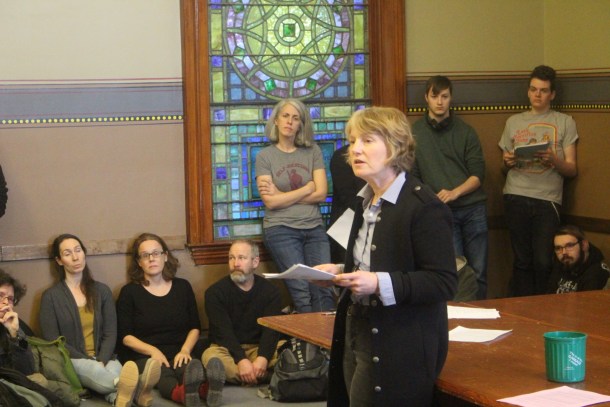
Madeleine M. Kunin, who was a three-term governor of Vermont, is the author of “Coming of Age: My Journey to the Eighties.”
The humanities are slowly slipping away in college curriculum. They are being replaced by STEM. Subjects like finance, engineering, and the sciences.
One example is Arizona State University, where “the number of English majors on campus … fell from nine hundred and fifty-three to five hundred and seventy- eight” (Nathan Heller, “The End of the English Major,” The New Yorker, March 5). A similar trend is showing up at colleges and universities around the country, including elite Harvard.
The University of Vermont is not spared, experiencing a similar slide in the humanities. President Suresh V. Garimella, a mechanical engineer, was appointed in part because of his expertise in “experiential” learning. English majors are declining, but not as fast at UVM as elsewhere. (113 English bachelor degrees 10 years ago; 88 in 2022).
Why is this happening? As with other tough questions, there is no simple answer. A partial explanation is that when students graduate from college today, they need a job to pay off their college loan debt. That can be steep. We know that a starting scientist is likely to earn a bigger paycheck than a first-grade teacher. Parents may push the trend further by saying to their kids, when you graduate, I want you to get a well-paying job.
First-generation college students face extra pressure to repay not only their own loans, but to help support their families. The New Yorker writes that liberal arts majors graduate with lower debts, but also receive lower starting salaries.
My personal experience has shaped my opinion. I graduated from the University of Massachusetts Amherst in 1956 with a major in history and a minor in English, enjoying my courses. The most memorable was a course on James Joyce and T.S. Eliot, in my senior year.
Did that course help me become governor? Probably not. But it taught me to explore the English language. It was a tough course. If a student came up with a new interpretation of a difficult text, the professor wrote her name in the margin of his book. A high honor because he was a professor at Amherst College and we were students at UMass, once called a cow college. He thought we were just as smart as his elite students. Wow!
Is there a glimmer of hope that the decline of the liberal arts is beginning to falter? Heller points out that high school students are leaning in the direction of the humanities. The pipeline is changing, slowly.
English, philosophy and history may make a comeback if students can allow themselves the pleasure of learning, without fearing bankruptcy.
Correction: An earlier version of this column misidentified the athletic conference of Amherst College.


